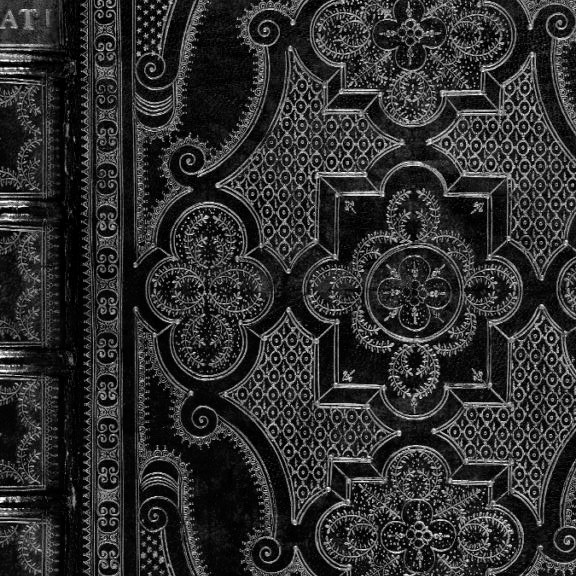See the topic categories here.
Whereas contemporaries read only the optimist with enthusiasm, posterity rereads the pessimist with admiration.
To feel capable of reading literary texts with the impartiality of a professor is to confess that we no longer enjoy literature.
A passionate reader does not renounce what he’s come to favor, but after a few decades, every poem is clearly black or white.
The “common reader” is as scarce as common sense.
Reading only contemporary authors dessicates the brain.
The most dangerous illiteracy is not that of the man who disrespects every book, but of the one who respects them all.
One man only communicates with another when he writes in his solitude and the other reads in his own. Dialogue is either a diversion, a swindle, or a fencing match.
A single paragraph of good sense is enough to induce us to attribute the incoherence of a text to our own ineptitude.
One can only reread the author who suggests more than he expresses.
There is no better substitute for thinking than a good library.
The readers of the illustrious author are divided into two groups:
those who admire him without reading him,
and those who despise him without reading him.
When the authors of one era can only write boring things, we readers change century.
The author who, with the first three sentence of his book, does not cause us to feel we are facing a distinct and unmistakable figure, is only fit for the garbage bin.
A great book is the one that, at any age, makes an impression similar to the one any book made on us in our childhood.
Until recently, finding my ideas confirmed by an illustrious book filled me with pride. Today, a similar occurrence automatically degrades the book, the idea, and its author. Really, I say to myself, what can that idiot be worth, if he thinks the same nonsense I do?
In every age there are two types of readers:
the curious reader in search of novelties,
and the aficionado of literature.
Learning to read: Interrupting the reading of one book with another will cause one to lose the author.
An intelligent book makes us feel intelligent as well, like heroic military music.
In our youth, we are only interested in contemporary authors and new literature. But as we age, only a certain steadfast type manages to seduce us- those few great books that remain still in the midst of the flurry.
Among the horrors of communism one must include having nothing to read but the prose of the leftist writer.
Men who don’t seek out books as a diversion, or for information, are scarce. The book rarely educates, people read with the spirit they already have. In books we discover nothing but the confirmation of our prejudices. Books educate only those for whom they are a living presence, an immediate and sensual object.
Each truth we learn teaches us to read in a different way.
An experienced reader can smell the rotten book from the first adjective.
The books from which we would not like to part tend to be those we have not truly approached.
A true reader is one who reads for pleasure the books others only study.
The biographies that seduce us in adolescence are about people we will never resemble; later we are only drawn to biographies of those most similar to ourselves.
The clever ideas slips unexamined through the fingers of most readers.
The perfect transparency of a text is in itself a delight.
In unremarkable texts we occasionally trip on phrases that reach into us, as if a sword had been deeply thrust.
A difficult text is not irritating so long as deciphering it doesn’t reveal some triviality, as in the current state of letters.
Not being a professional in literature affords me the privilege of exempting myself from the obligation to read the books of my countrymen.
Without dignity, without sobriety, without refined manners, no prose fully satisfies. We ask of the book we read not only talent, but good breeding.
Rereading the books that seduced us in our youth is impossible. Either the obvious mediocrity of the book saddens us, or we superimpose upon the author’s text what we once perceived with wonder and fresh imagination.
To understand a text you must walk around it slowly, as no one enters but through invisible posterns.
Phrases are pebbles that the writer tosses into the reader’s soul. The diameter of the concentric waves they displace depends on the dimensions of the pond.
A book does not educate someone who reads it to become educated.
Contemporary literature, in any era, is the worst enemy of culture.
The limited time of the reader is wasted on reading a thousand mediocre books that dull his critical thinking and injure his literary sensibility.
Reading is an unsurpassable drug, because it not only allows us to escape the mediocrity of our lives, but the mediocrity of our souls.
How to read is the last thing one learns.
Admiring only mediocre works, or reading only masterpieces, characterizes the uncultivated reader.
All literature is contemporary for the reader who knows how to read.
How rare are those who do not admire books they have not read!
Whoever cites an author shows that he was incapable of assimilating his ideas.
When we think that the “soul” of a writer interests us, it is only because that is the name we call his talent.
When the desire for others places, other centuries, awakens in us, it is not really in this or that time, in this or that country, that we wish to live. But rather in the very phrases of the writer who knew how to speak to us of that country or that time.
A noble verse awakens those passions suffocated by life, and stimulates an appetite for living we thought satiated.
The only second-rate authors that are readable are French. Second-rate German authors are totally unreadable.
Reading: opium of the spirit, laziness disguised as activity, a form of fear of oneself and the world. The book is a substitute for us, we lose ourselves in reading so that we do not find ourselves obliged to respond to the latest news and every novelty in this life.
The true reader clings to the text like a shipwrecked man to a floating plank.
Reading nothing for awhile but Latin and Greek is the only way to clean out the soul a bit.
Every book we read must leave us richer or poorer, more sad or happy, safer or more uncertain, but never intact.
The reading of second-rate poets surely features among the torments of hell.
If, when opening in a book, we do not participate in it with disgust or with love, it is better to abandon it until a shadowy need or specific demand awakens in our souls the passion that is illuminated by such a reading. Any book that does not find our secret selves, naked, troubled, and bloody, is a mere temporary refuge.
Note: Dávila was a Colombian political philosopher and in the Latin church. His aphorisms are presented here for the purposes of enjoyment, study, and historical record, but do not necessarily reflect the opinions of this writer. For more information on Dávila, see this introductory post. For information on how to live your life, go to church and read the Church Fathers/Saints.
Featured image: Antique book cover, source unknown




